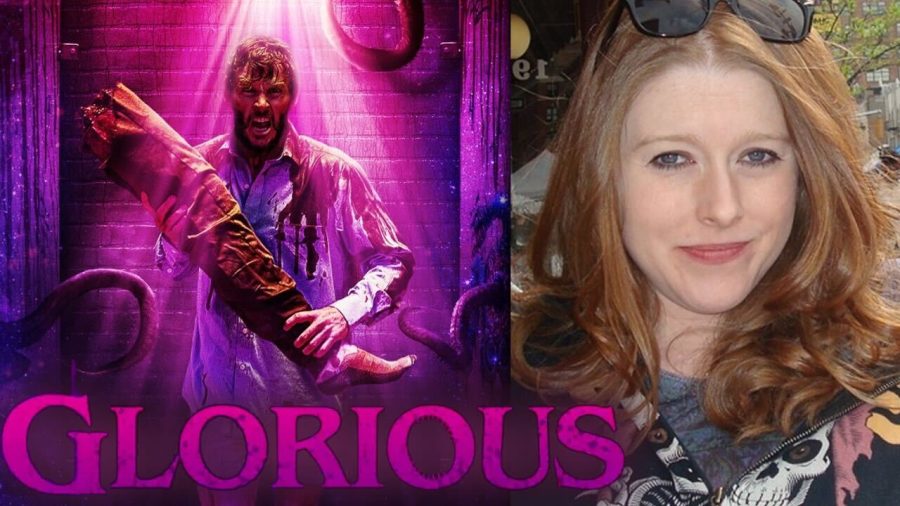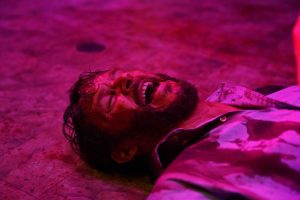Director Rebekah McKendry spills secrets and experience with Shudder-exclusive “Glorious”
August 31, 2022
The Daily Texan sat down with director and USC professor Rebekah McKendry to discuss the new Lovecraftian horror movie “Glorious” starring Ryan Kwanten and J.K. Simmons, exclusively on Shudder.
The Daily Texan: What’s it like directing a movie with only one actor on set, with the other being a voice actor?
Rebekah McKendry: It was an absolute blast, and we had a ton of rehearsals going in. With Ryan by himself, … we knew our Achilles’ heel would be that it’s one location and basically one actor for the entire movie. (Then) it became, “How can we mitigate that? How do we make it interesting to look at?” It was all kinds of things that we had to bring in on a production level, like treating the stall like its own character. We love the way that it (came together) because it (required) such heavy (camera) movement throughout.
DT: The main setting — a bathroom — almost feels like a third character. Did you use a real bathroom or a set?
RM: (They) asked if I wanted to use a real bathroom, and I was like, “That’s disgusting.” … It sucks to shoot a bathroom. Everything in the bathroom is meant to be reflective, whether it’s the faucets, the mirrors or even the tile work. Additionally, most bathrooms have a strong echo to them. They’re not shooting-friendly (because they’re) always tiny and compact, so we knew from the get go (that a real bathroom would) not work because we did need this bathroom to give a performance. I wanted the bathroom to be (the) nicest looking rest stop in town, so (we built it with) racing stripes on the wall, a roller disco theme. The bathroom needed to perform for us. The mirrors had to be broken in a specific manner so that Ryan could see himself in the mirror and see the stall behind them.
DT: What would you say was the most difficult thing on set to shoot?
RM: Anytime we’re doing practical effects, it always grinds (our) production to a halt. We were 85% to 90% practical (effects). Practical effects will always be harder to shoot, but they’re also my favorite days because it’s a lot of troubleshooting. I (wanted) an embryonic sack to be dropping below the stall — it was actually a clear piece of plastic sheeting, painted (and) speckled. We filled it with milk (and) threw a couple of glow sticks in there. (Then), there (were) four people in the bathroom stall and me at (the) monitor going, “Lower, lift it up, jiggle (it).” They would shake it, and we’d get this undulation with the liquid. Those days slow you down, … but they always end up being my favorite days as well.
DT: What would you tell students pursuing your career?
RM: Never wait for Hollywood. I see that in so many of my USC students. They come to school, finish their time at USC (and say,) “I’m a fully trained filmmaker now.” Then, they sit there and wait for Hollywood to come knock at their door and be like, “I got $10 million. Can I read your script?” It does not go down like that. You have to be willing to make that first feature yourself. That is a big step. It’s very much like a reverse-engineered horror script that is based on your restrictions instead of your … full expanse of free thinking. Instead, say, “If I have my bedroom, I have $10,000, and I can afford three actors. What horror can happen from there?” Those are my students who get that first feature done, … and those are the students that I see actually working in the industry.












